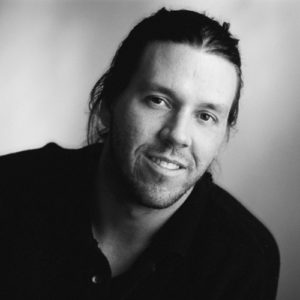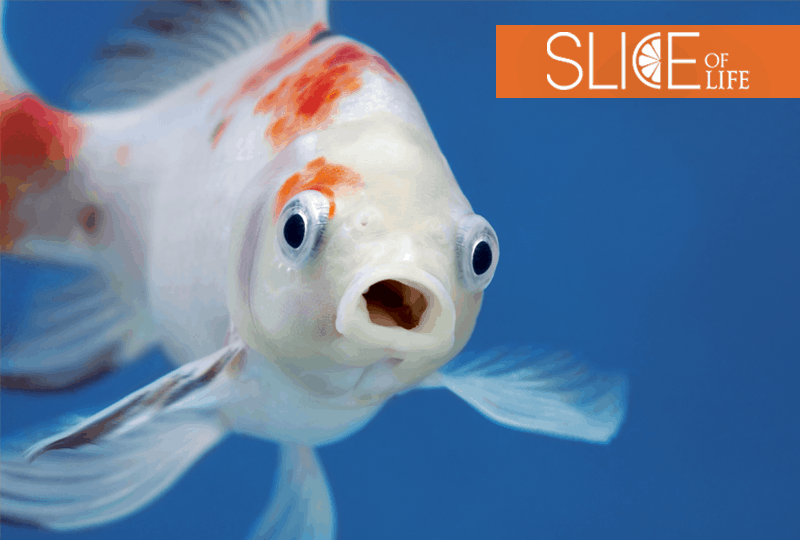Commencement addresses are equal occasions of inspiration and cliche. A speaker is asked to deliver a speech to a group of college seniors moving on into the “adult world.” Some of the students may be totally oblivious to who this speaker is. In some occasions, the speaker is more than one generation removed from their audience and it might not be quite clear if their advice is relevant. Regardless, they tend to be speeches of the best intentions delivered to a group of people convinced they have just spent four years in order for such advice to be beneath them.
This is the environment of expectations in which David Foster Wallace gave a commencement speech in 2005 at Kenyon College. Wallace was (and still is) considered a deeply influential voice in American literature, but it was very likely that only a handful of people with humanities degrees would have had a clear idea of who they were hearing from. Wallace’s speech has since then been distributed in print and recording under the title This is Water: Some Thoughts, Delivered on a Significant Occasion, about Living a Compassionate Life. You are free to read or listen to it at your leisure, but today we are going to look at one of the key lessons that Wallace focuses in on as advice to his young adult listeners. He begins with a short Aesop-like fable of talking animals, but the actual takeaway is harder to drill down to than “Slow and steady wins the race.”
 Greetings, parents and congratulations to Kenyon’s graduating class of 2005. There are these two young fish swimming along and they happen to meet an older fish swimming the other way, who nods at them and says, “Morning, boys. How’s the water?” And the two young fish swim on for a bit, and then eventually one of them looks over at the other and goes “What the hell is water?”
Greetings, parents and congratulations to Kenyon’s graduating class of 2005. There are these two young fish swimming along and they happen to meet an older fish swimming the other way, who nods at them and says, “Morning, boys. How’s the water?” And the two young fish swim on for a bit, and then eventually one of them looks over at the other and goes “What the hell is water?”
Before seeing how Wallace spins this, let’s think about this metaphor. You don’t have to be a fisherman to know that fish live in water‒but farther than that, in our little illustrative story the young fish are also completely oblivious to it. Like the centuries of humans who lived before any scientific account of gravity, these fish live in a world of physical realities that they participate in without necessarily considering or reflecting on. This sets us up to turn our attention from fishes to humans.
What Wallace wants to connect this to is what he calls our “default mental state.”
It is our default setting, hard-wired into our boards at birth. Think about it: there is no experience you have had that you are not the absolute center of. The world as you experience it is there in front of YOU or behind YOU, to the left or right of YOU, on YOUR TV or YOUR monitor. And so on. Other people’s thoughts and feelings have to be communicated to you somehow, but your own are so immediate, urgent, real.
Rather than offer them advice on starting a new career, or finding a place to live, or starting a family, this is what Wallace’s speech draws our attention to. We are creatures limited in our perspective of the world. Just like a fish in water, we rely on this (otherwise how could you have any coherent sense of self, or past and present) but it can also very, very easily determine how we interact with and treat other people if we go about our day totally unreflective. Thus, part of becoming an adult means getting better at “metacognition” (a really fancy word for “thinking about thinking”). If our temper is short one day, or if we are having trouble working as a team on a task, it can be useful to consider ourselves as the fish. What is it about our mental state that is determining how we engage with the world, and even if we can never “escape” that water, can we at least tweak our behavior to be better in flow with the world?
Wallace’s point isn’t that you are somehow bad or that you somehow are a failure who needs to keep quiet; actually, it’s quite the opposite. Wallace’s point is that if we unreflectively go about our day assuming that our thought processes, our memories, our values and our mood at the time is indicative of the “water” that all other “fish are swimming in,” then that is simply an incompatible way to share the world with others, and it will only lead to our personal diminishment:
And I submit that this is what the real, no bullshit value of your liberal arts education is supposed to be about: how to keep from going through your comfortable, prosperous, respectable adult life dead, unconscious, a slave to your head and to your natural default setting of being uniquely, completely, imperially alone day in and day out.
As a final point, take note of Wallace’s first phrase here. Even if the point of the parable of the fish is to get us to be more aware of ourselves and how we treat others, Wallace repeatedly stresses that he doesn’t view this process as an “act of virtue.” Instead, he presents this ability to be more aware of ourselves as an outcome of education. This is a very interesting claim, and certainly put an emphasis on learning that isn’t reducible to memorizing facts and figures. Instead, it is through the process of learning that we can use an ever-expanding contextual awareness to better understand ourselves and the people around us:
It is about the real value of a real education, which has almost nothing to do with knowledge, and everything to do with simple awareness; awareness of what is so real and essential, so hidden in plain sight all around us, all the time, that we have to keep reminding ourselves over and over:
“This is water.”
“This is water.”
It is unimaginably hard to do this—to stay conscious and alive in the adult world day in and day out—which means yet another grand cliché turns out to be true: your education really IS the job of a lifetime. And it commences: now.
Want to learn more about Life University’s Commencements? Check them out here on our YouTube page.
Slice of LIFE is an invitation to and extension of everything happening at Life U. Whether you are a current student, a potential freshman or a proud alumni, Slice of LIFE can help keep you connected to your academic community. Know of a compelling Life U story to be shared, such as a riveting project, innovative group or something similar? Let us know by emailing Marketing@life.edu.


Social Media